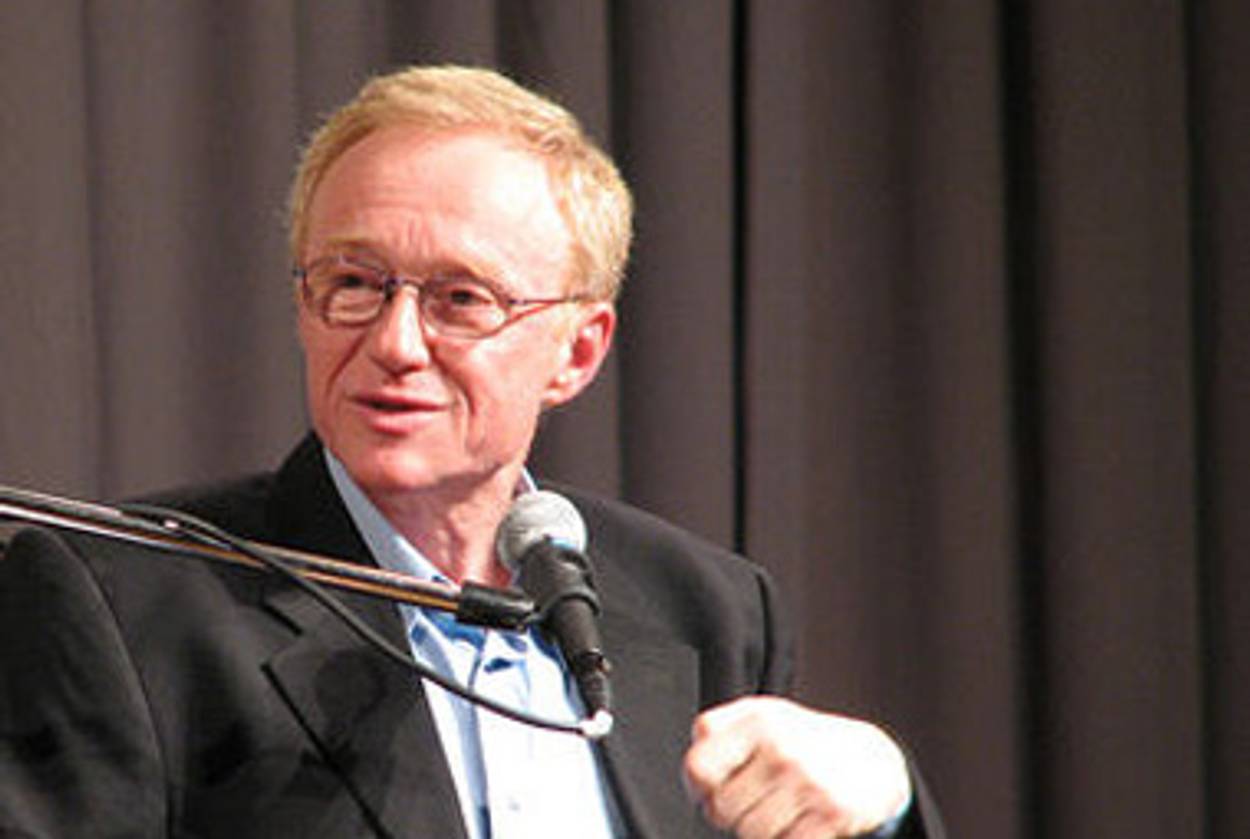The Tailor David Grossman
Israeli novelist accepts his lot




We learn in George Packer’s profile of David Grossman that the first novel to have a real impact on him was Sholom Aleichem’s Motl, Peysi the Cantor’s Son (actually, Grossman once cited it in an essay he published in Tablet Magazine’s predecessor, Nextbook.org). One sees Grossman as quite similar to the Motl we know from Fiddler on the Roof: Relatively simple, bordering on earnest; desirous of little beyond living a quiet family life; an actor in history only when history intrudes upon him.
Grossman was born an Israeli because his grandmother presciently fled to Palestine from Poland in the ‘30s; grew up a fairly uncritical Zionist, becoming left-wing only after meeting and falling in love with the woman who became his wife, Michal; and turned increasingly sharp in his critiques of “the situation”—the post-1967 Israeli occupation of the Palestinian territories—through first-hand experience, first as a soldier in Lebanon in the early ‘80s, then as a reporter. The family man’s family was disrupted by history during the Lebanon war of 2006, when his middle son, Uri, a soldier, was killed fewer than two days before the cease-fire.
Packer’s Grossman put me in mind of the recent Time cover story with the incredibly misleading title. If you read the article, you would find that Israelis would like little if anything more than peace, but in peace’s absence, they have tried to craft tidy lives for themselves, as anyone would. “Please remember, I’m a novelist,” Grossman tells Packer. “And what interests me most is the nuances of what goes on between two people, or between a person and himself.” Hence his newly translated novel, To the End of the Land, writes Packer, “is not an apolitical novel; it is antipolitical—a protest against history and its endless incursions into ‘this softness of life.’”
The tragedy, if I may resort to it, of Fiddler on the Roof is that many of the characters—and the tailor Motl is the prototypical member of the younger generation—would just as soon stay in Anatevka, despite its difficulties. Many people, like Grossman, don’t have a burning desire to live in history. But for many, including Grossman, history comes and finds them anyway.
The Unconsoled [New Yorker]
Related: Books That Have Read Me [Nextbook.org]
Earlier: Does Israel Really Not Care About Peace?
Marc Tracy is a staff writer at The New Republic, and was previously a staff writer at Tablet. He tweets @marcatracy.